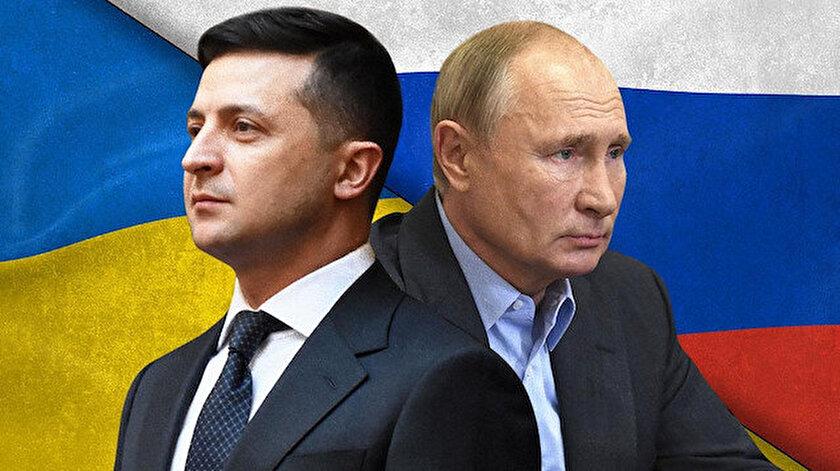BY ZEYNEP GURCANLI
We feared it would happen in Ukraine.
After the extraordinary military buildup on the Ukrainian border, Russian leader Vladimir Putin took the expected step of officially recognizing Luhansk and Donetsk, two Russian-dominated regions that declared their independence from Ukraine.
Not only did he recognize them, but by signing cooperation and assistance agreements with these regions, he legitimized the Russian mercenaries already in the field in Donestk and Luhansk within the framework of the Russian Constitution.
It’s not over.
Russian Deputy Foreign Minister Rudenko announced that Russian military bases will be officially established in the two regions, and the Russian Ruble will be used as currency there.
What’s worse, Putin made a second speech right after Russian soldiers started to settle in the two regions, declaring that they recognized Luhansk and Donetsk and that “within their borders [he] declared independence.”
This means that the two regions that declared independence from Ukraine are not in a position to actually control everywhere within the borders they have drawn. Forces are only in the areas close to the Russian border. About 70% of the geographical area declared “independent” is still under the control of the Ukrainian security forces.
This move by Putin is a challenge to both Ukraine and to Western countries, threatening that he could take those other areas, too.
THE WEST’S REACTION
It is possible to summarize the reaction of Western countries to this situation in two words: confusion and helplessness.
The mess that are that the U.S., the UK, and the European Union have not been able to show a unified response.
In England for example, Prime Minister Johnson announced that he has imposed sanctions on some Russian oligarchs close to Putin. However, the U.S. had already imposed sanctions on the same people when Crimea was occupied and annexed by Russia in 2014. The American sanctions must not have been enough to intimidate Putin and those around him, considering what is happening now. Now, is the British participation in the sanctions enough to stop the aim of “re-establishing Tsarist Russia” by the Moscow elites? Only time will tell.
European Union sanctions, on the other hand, are aimed at Russian deputies who voted for the recognition of Donestk and Luhansk in the Russian Parliament. Can these sanctions deter MPs from voting in Russia, where Putin has full control? Another questionable move.
The first sanctions announced by the USA were aimed at the Russian financial system. However, the Washington administration has only included Russian banks from the two occupied regions on the sanctions list. The big Russian banks, whose sanctioning could seriously wear down Russia and which used by the Russian people, are not on the list.
PUTIN TOOK PRECAUTIONS
The U.S.’s ban on trading Russian debts in Western market and Germany’s suspension of the NordStream2 pipeline are futile given what Putin has already done before moving into Ukraine.
During his visit to China, using the Olympic Games as an excuse, Putin signed a large-scale oil and natural gas sales agreement with the superpower. The 30-year agreement envisions an extraordinary amount of sales to China via the oil and gas pipelines being built between China and Russia. Thus, Putin has created a much better “alternative” market than Germany or Europe.
The head of the security council, Medvedev, has continually emphasized Russian citizens in the two regions and the war is being wages in they name. Medvedev announced that there are approximately 800,000 Russian citizens in the two regions, apart from those of Russian ethnic origin. In a sense, it justified the “intervention” in its own way as protecting the citizens of Russia.
Not to mention the statements from the Russian authorities that “Ukraine was shooting its own citizens in Donetsk and Luhansk”.
LOOK AT WHAT YOU DID…
As we look at Ukraine falling under Russian control in pieces, it is impossible not to remember what the West did during the disintegration process of Yugoslavia. While conflicts were ongoing, Germany’s recognized the countries that declared independence, thus paving the way for civil war.
The U.S. and its partners accused Assad of using weapons against his own citizens in Syria and intervened, thus establishing terror-related “statelets” in Syria and sending military supplies and ammunition by trucks.
Some of these are memories, and some are ongoing.
The division of Yugoslavia and the redrawing of the map of Europe were the final nail in the grave of the collapsing bipolar world system. What is happening in Ukraine, on the other hand, is obviously the first steps of the transition from a unipolar world led by the USA to a poly-centric balance of power.










